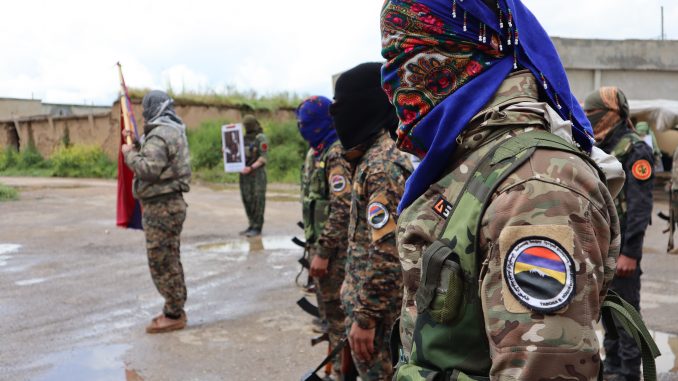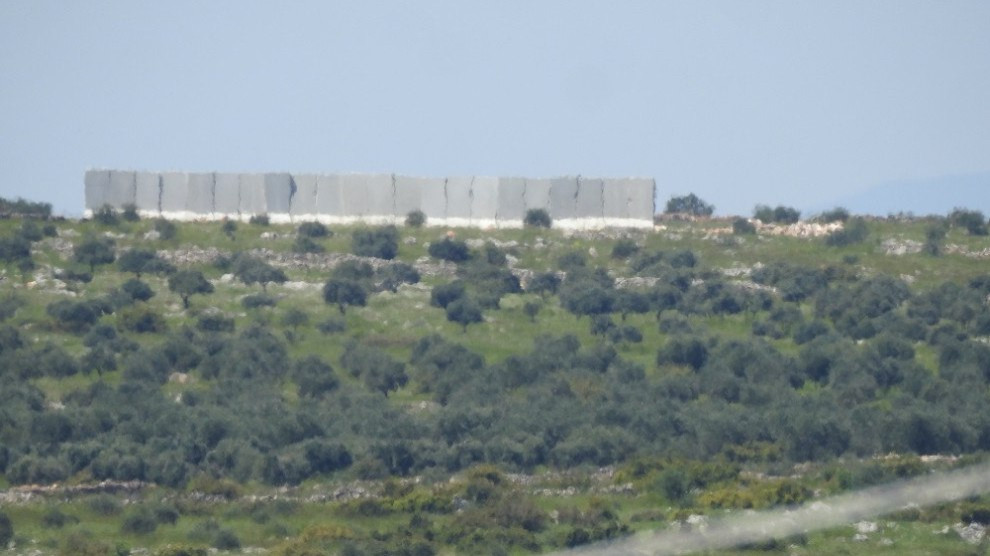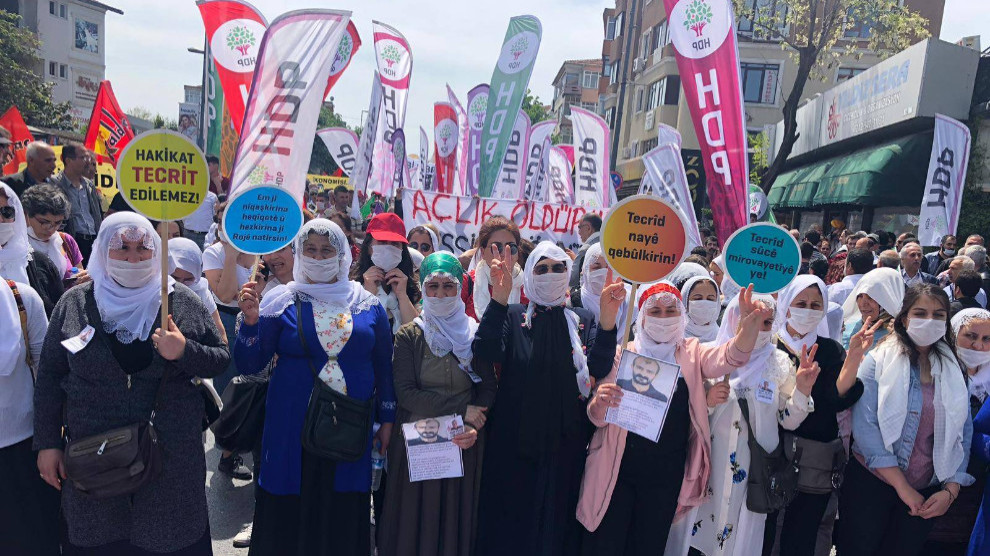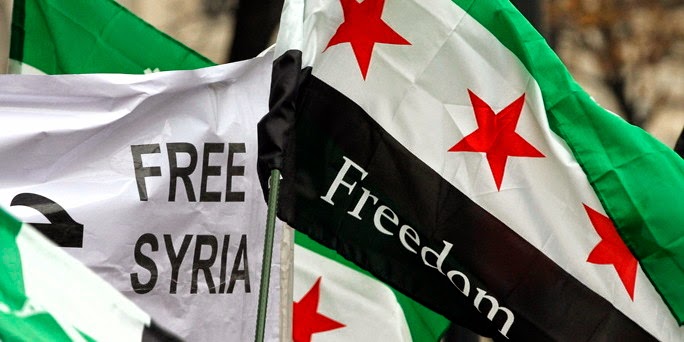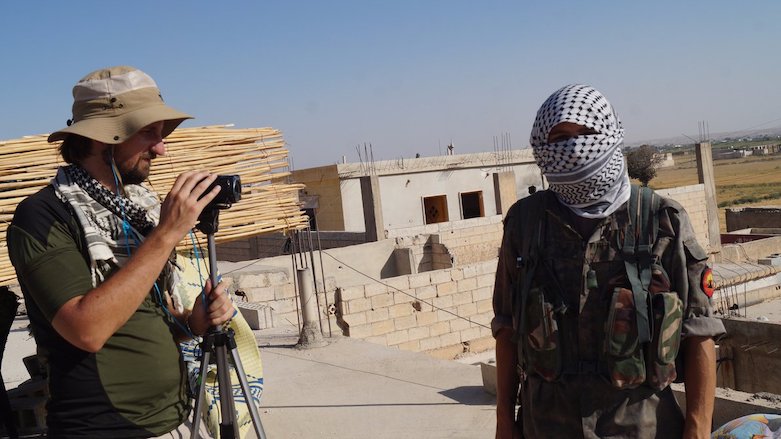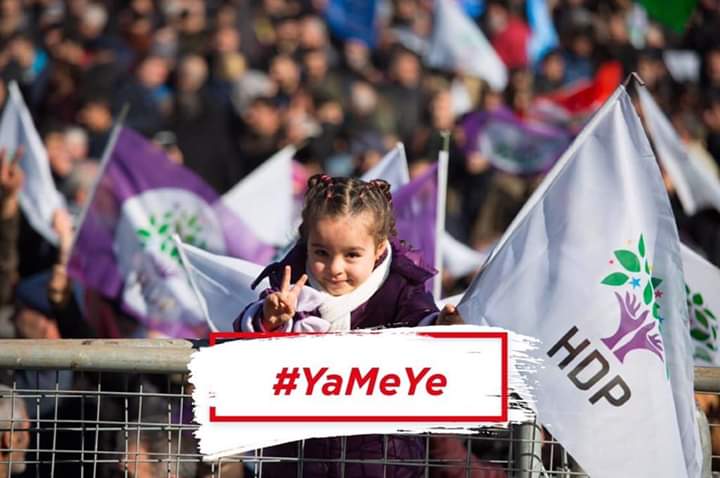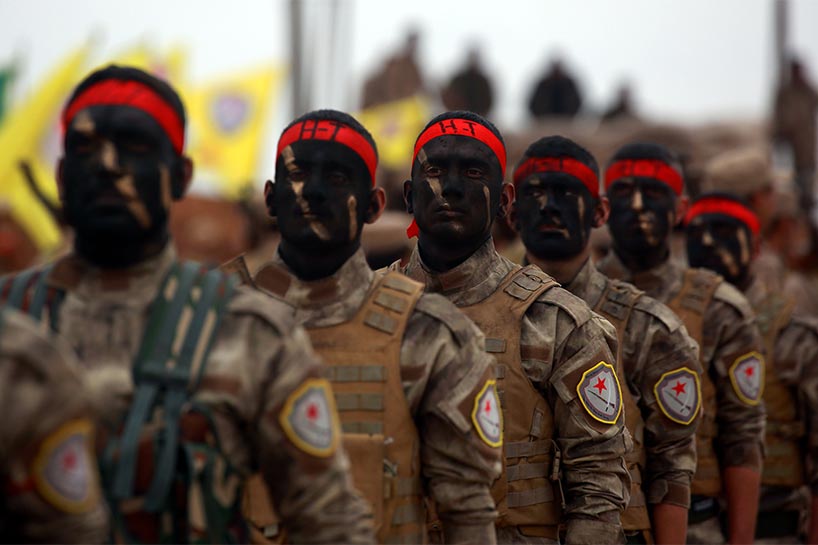
Syrian Democratic Forces fire on Arab protesters
The final defeat of ISIS in Syria’s northeast has left many Arab-majority areas of the region under occupation by the Kurdish-led Syrian Democratic Forces (SDF)—a situation obviously fraught with risk. Over the past weeks, protests have mounted in Arab villages across Deir ez-Zor province against the SDF, with residents demanding better services, employment and a greater role in decision-making. Finally, SDF fighters opened fire on protesters in the village of Shheil, killing one person. The protest came after an overnight raid in the village, in which SDF fighters besieged a neighborhood and killed six people. (Image via Rudaw)



